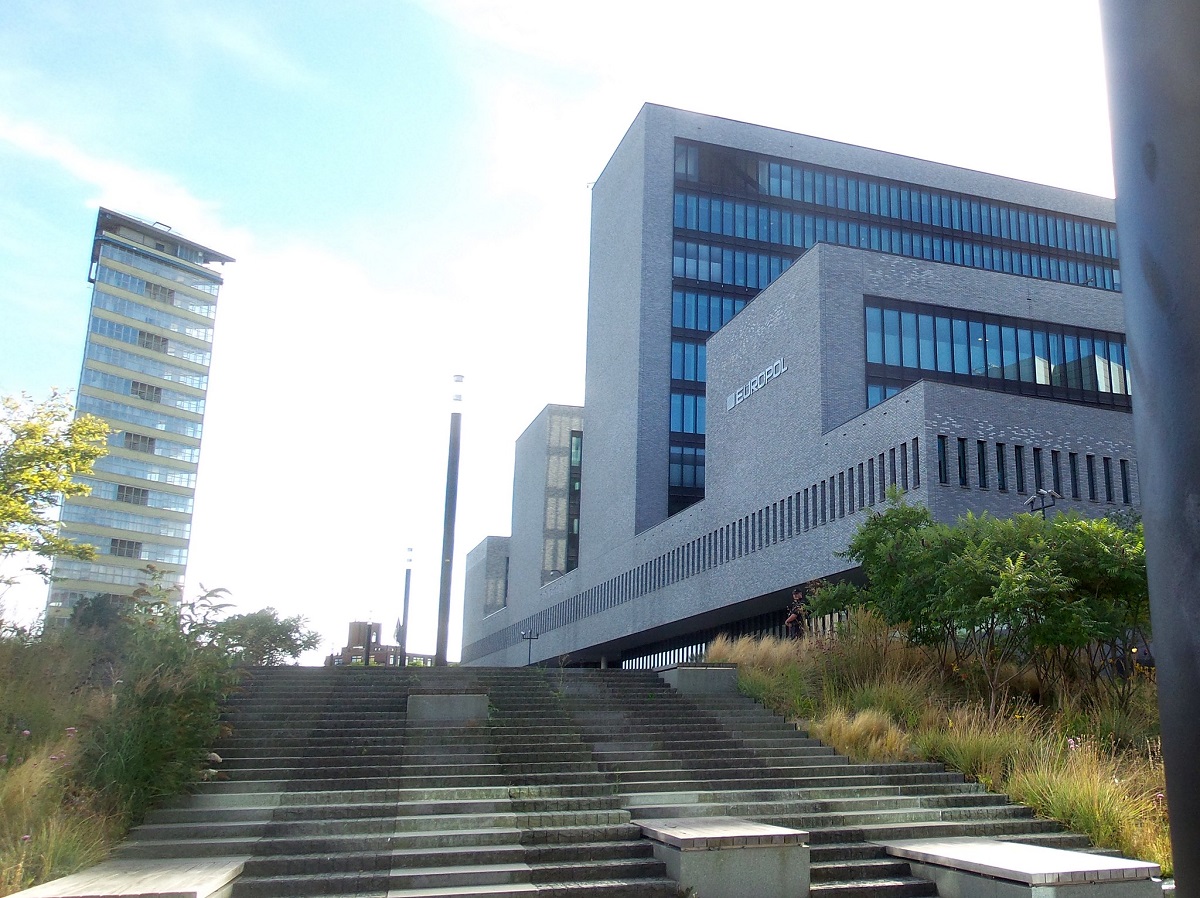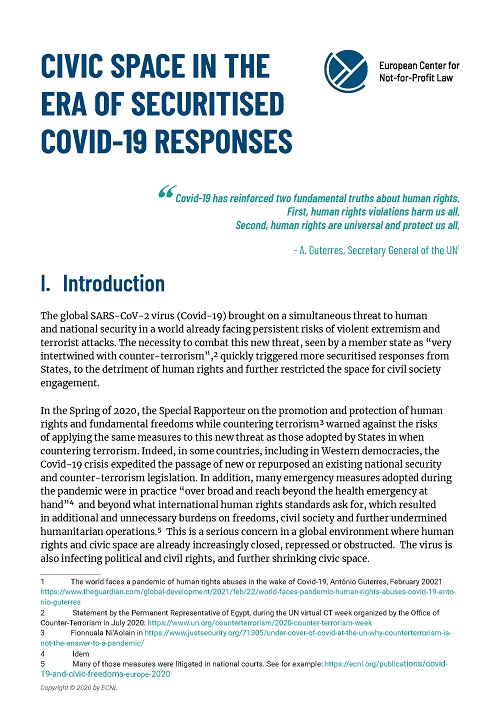"Artificial intelligence" could be used to screen and profile travellers to the EU
Topic
Country/Region
26 February 2021
The screening and profiling of tourists and travellers to the EU could be stepped up even further with the use of "artificial intelligence" tools developed by EU agencies as part of the new 'Innnovation Hub for Internal Security'.
Support our work: become a Friend of Statewatch from as little as £1/€1 per month.

An 'Innovation Hub' was set up at Europol last year to try to foster cooperation between national and EU agencies and authorities on developing and testing new security technologies, and a note circulated by Europol to the Council's internal security committee (COSI) suggests that it has developed quickly.
According to the note, seven projects have been proposed as potential "quick wins" for the Hub, including an assessment of whether "artificial intelligence" could be used to screen and profile travellers and tourists as part of the forthcoming European Travel Information and Authorisation System.
It is already a legal obligation for this system to use an automated risk assessment and profiling tool on all visa-free travellers to the EU, but eu-Lisa - the EU's database management agency - considers that "AI could support this effort". (The Statewatch report Automated Suspicion examines the ETIAS in detail.)
Other projects under consideration include an examination of accountability mechanism in artificial intelligence in the justice and home affairs domain, monitoring of the darknet, the future of biometrics in travel, and the use of aerostats (large balloons tethered to the ground) for aerial surveillance. The full list is below.
See: Europol: EU Innovation Hub for Internal Security - State of Play (contained in Council document 5905/21, LIMITE, 17 February 2021, pdf)
The "quick-win" projects being considered by the Hub are:
- EU-coordinated Darknet monitoring to counter criminal activities for 2020 (DG HOME, EU Joint Research Centre, Europol, European Monitoring Centre for Drugs and Drug Addiction)
- Accountability Principles for Artificial Intelligence (AI) used in the area of Freedom, Security and Justice (Europol)
- Artificial Intelligence (AI) initiatives in ETIAS (eu-Lisa and Frontex)
- Frontex proposed "two operational projects"
- Maritime Surveillance Aerostat Pilot Project
- Land border pilot for Entry-Exit System (EES) solution
- And "two research projects":
- The EU Green Deal and the European Border and Coast Guard
- Technology Foresight on Biometrics for the future of travel
With regard to the use of AI for the European Travel Information and Authorisation System (ETIAS), the document says:
"Article 33 of the ETIAS Regulation specifically asks for an algorithm to be developed to allow for automated profiling of travellers through the comparison of data recorded in ETIAS with pre-defined risk indicators and screening rules. The algorithm shall be based on the specific risk indicators to be defined by the ETIAS Central Unit. AI could support this effort. Considering the timeline of the implementation of the ETIAS system, this will be one of the first use cases where AI will be deployed within systems managed by eu-LISA. Cooperation with Frontex on this project is foreseen as the ETIAS Central Unit will play a key role. This project will be tested and deployed as early as possible and no later than the entry into operation of ETIAS before the end of 2022."
The aim of Europol's project on artificial intelligence and accountability is:
"...to define a set of universally applicable accountability principles to guide human-centred and socially driven AI capabilities for organisations within the security and justice sector. The project will also create a toolkit for security and justice practitioners to auto-evaluate future AI systems in light of the accountability principles. The outcome of the project could also inform the European co-legislators on the expected Commission proposal for AI legislation in April 2021 by providing a comprehensive account of the JHA Agencies’ approach to develop AI tools in an accountable and responsible manner."
It should be noted that "accountability principles" are not the same thing as the law.
The Hub has apparently proven popular:
"More than 30 participants representing nine JHA Agencies (CEPOL, EASO, EIGE, EMCDDA, eu-LISA, Eurojust, Europol, FRA and Frontex), the European Commission (JRC, DG Home), the General Secretariat of the Council and the Office of the EU Counterterrorism Coordinator have met every fortnight since November 2020."
The principal shortcoming identified by the Presidency is a lack of dedicated resources:
"Further progress to make a real difference and to fulfil the objectives set by the COSI (becoming a joint EU platform to support the delivery of innovative cutting-edge products for the security of citizens in the EU), will depend the allocation of dedicated personnel and budget from the Agencies involved."
A separate document brings up questions of governance and coordination, and calls for further input from member state representatives: Presidency: The EU Innovation Hub- Way Forward - Governance and Operational Tasks (5906/21, LIMITE, 17 February 2021, pdf):
"In view of the Presidency the following aspects are therefore important to highlight at this stage to support further development of the EU Innovation Hub:
-
- The Member States are invited to continue and further strengthen their support to the Hub, in order for the Hub to foster a close and natural connection with the national innovation labs and to share the burden of the resource implications of the Hub's activities.
- COSI will discuss the governance of the Hub, including the establishment of the Steering Group once the operational tasks and modalities of the Hub have become effective, starting with the "quick win" projects. This will allow sufficient experience to be gained and useful lessons to be drawn, so that this can inform decisions on the development of an appropriate governance model.
- At present the Hub is running on existing resources of the Agencies. Fostering innovation would require specific resources. The Commission, supporting Europol and together with the participating JHA Agencies, is invited to scope the existing situation, assess the needs and identify possible concrete next steps to ensure the necessary resources for the functioning of the Hub.
Delegations are invited to express their views on the issues outlined above."
Image: Anders Sandberg, CC BY-NC 2.0
Our work is only possible with your support.
Become a Friend of Statewatch from as little as £1/€1 per month.
Spotted an error? If you've spotted a problem with this page, just click once to let us know.
